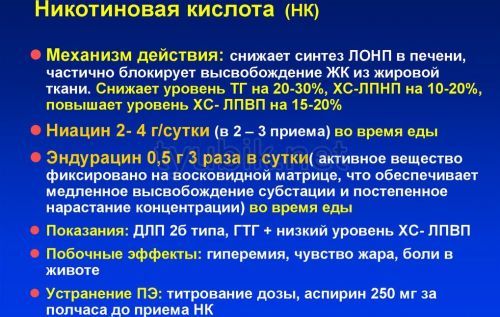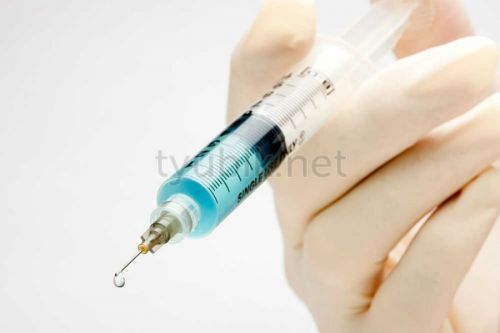Nicotine injections indications for use
Nicotinic acid in neurology is one of the most affordable drugs. In other areas of medicine, medicine is also prescribed, and it does not have many contraindications.
Nicotinic acid - how it works
Nicotine, or nicotinic acid in pharmacies is sold in the form of a solution for injections. The price of a package of 10 ampoules varies depending on the manufacturer - it can range from 60 to 200 rubles. The drug belongs to the group of vitamins, is an aqueous solution of niacin, or vitamin B3. It is injected intramuscularly, rarely administered slowly intravenously, and is also widely prescribed for electrophoresis.
In an ampoule of 10 mg - 1% nicotinic acid, the rest falls on saline.
In addition to the solution, the drug is available in tablets, it is included in a huge number of vitamin complexes. The action of the drug is due to its effect on the vessels, it has the following effects:

Nicotine helps to make up for the lack of a vitamin, which often occurs in the body with various diseases. Niacin takes part in most oxidative reactions, in a number of metabolic processes, its benefits to the body are undeniable.
When applied, the drug normalizes vascular permeability, eliminates edema, optimizes tissue metabolism, blood circulation at the local level. Also, the drug has a blood-thinning effect - it prevents excessive gluing of platelets. Nicotine normalizes lipids in the blood, prevents the development of atherosclerosis of blood vessels.

Who is a vitamin for?
In connection with the extensive effects, the indications for the use of nicotine in injections are varied. The drug is injected in the treatment of osteochondrosis, arthrosis of the joints - niacin improves local blood circulation, optimizes cartilage nutrition, protects tissues from aging and wear. Indications for use are also the following:

In complex therapy, the drug can be prescribed for atherosclerosis - to correct the level of cholesterol, triglycerides in the blood. It improves the condition of blood vessels in other organic pathologies, for example, in Raynaud's disease and syndrome.
The drug is often prescribed for diabetes to treat vascular complications.
Other indications are ischemia of the heart, brain, colitis, enteritis, neuropathy, gastritis with low acidity, hemorrhoids, blurred vision, skin diseases, poisoning.

Instructions for use in injections
The drug in some cases is poorly tolerated, so injections are only permissible in a medical office. The step by step introduction of the solution is as follows:

How much to administer drugs, the specialist decides, the approximate norms are as follows:
It is advisable to give injections after meals, in which case the risk of side effects will be reduced. The course of therapy, depending on the disease, is up to 14 days.

Analogues and what else the patient needs to know
The drug is quite painful for intramuscular injections, so it is often put into a vein. Among the side effects, there is often a drop in pressure, dyspepsia, stomach pain, bloating, some people have an allergy in the form of a rash, redness of the skin. Sometimes the appetite is disturbed.














